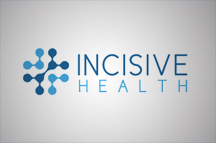Watching le Tour not Twitter? Here’s our summary of some of the contenders for this week’s Twitter yellow jersey for health.
-
 There has been a sharp increase in non-NHS-provision of community health services, finds the Nuffield Trust.
There has been a sharp increase in non-NHS-provision of community health services, finds the Nuffield Trust. - The link between alcohol consumption and mortality. Apparently mortality is more linked to beer than wine use.
- The drugs don’t work, but it is an economic, not a scientific problem. An interesting analysis of how to stimulate greater development of new antibiotics.
- An inevitable (but good) World Cup infographic. Brazil is also winning the competition to reduce child mortality.
- The impact of a home nation playing in the World Cup on its heart health. It appears to be literally heart-stopping.
- Want to test your health knowledge? Take your weekly #HealthCheck.
- Nominate your favourite science commentator here.
- £69m is the estimated financial dividend for helping people with cancer die in the place of their choosing, estimates Macmillan Cancer Support.
- A funding opportunity for research into use and usefulness of patient experience data.
Jeremy Hunt’s plan to publish data on GP missed opportunities to diagnose cancer has provoked heated debate. Here are some of the interesting takes on the issue that we noticed:
- This paper by Greg Rubin et al suggests there might be system explanations for later diagnosis of cancer.
- The reasons for emergency presentation pre-cancer diagnosis are complex, but understanding which are avoidable is crucial to improving outcomes.
- “GPs need to be supported, not bullied” – 650 sign a letter opposing plans to name and shame GPs on cancer.
- A must read blog on the practical challenges of trying to improve GP diagnoses of cancer.
And from America:
- “With cancer, there are no guarantees” – an oncologist’s perspective on trying to deliver what matters to a patient with advanced cancer.
- Great interactive timeline looking at trends in FDA drug approval.
- Where alcohol abuse is deadliest in the USA – a fascinating interactive map.
- Linking medical records and cancer registries to improve the quality of rectal cancer surgery in Michigan.
- Linking health and consumer data leads to some curious correlations. The findings need careful handling, argues this New York Times article.
And finally…
- Want to get up to speed with social media? Don’t read this FBI guide to internet slang.
Incisive Health is the new force in health policy and communications. In an NHS environment that is noisy, changing rapidly and where decision-makers are under intense pressure, policy communications need to be incisive to make an impact. We know how to cut through the noise and competing priorities to deliver results that enhance our clients' businesses and reputations and – ultimately – improve healthcare for patients.












